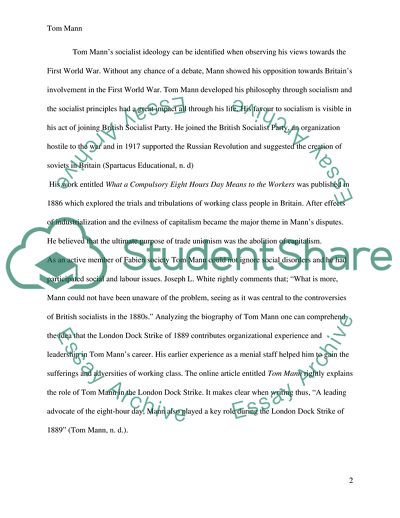Cite this document
(The Significance of the Role of Tom Mann in Challenging Authority in Coursework, n.d.)
The Significance of the Role of Tom Mann in Challenging Authority in Coursework. https://studentshare.org/history/1737675-assess-the-significance-of-the-role-of-tom-mann-in-challenging-authority-in-britain-in-the-period-1881-1941
The Significance of the Role of Tom Mann in Challenging Authority in Coursework. https://studentshare.org/history/1737675-assess-the-significance-of-the-role-of-tom-mann-in-challenging-authority-in-britain-in-the-period-1881-1941
(The Significance of the Role of Tom Mann in Challenging Authority in Coursework)
The Significance of the Role of Tom Mann in Challenging Authority in Coursework. https://studentshare.org/history/1737675-assess-the-significance-of-the-role-of-tom-mann-in-challenging-authority-in-britain-in-the-period-1881-1941.
The Significance of the Role of Tom Mann in Challenging Authority in Coursework. https://studentshare.org/history/1737675-assess-the-significance-of-the-role-of-tom-mann-in-challenging-authority-in-britain-in-the-period-1881-1941.
“The Significance of the Role of Tom Mann in Challenging Authority in Coursework”. https://studentshare.org/history/1737675-assess-the-significance-of-the-role-of-tom-mann-in-challenging-authority-in-britain-in-the-period-1881-1941.


